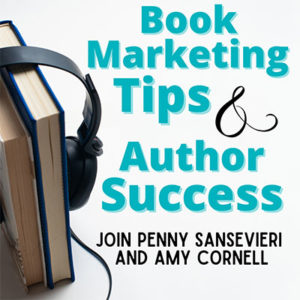In the past, book marketing and publicity firms often favored doing a press release to promote an author’s brand or their latest release. Mainly because they’re so often used by other industries and news outlets to promote newsworthy stories or announcements.
And due to the long history of using press releases to make a splash, so to speak, it’s often the first thing an author thinks of when it comes to book marketing.
But in a world where there are 3 million books published each year, so over 8,000 books every day, does it still make sense?
The short answer is: Yes, sometimes, when used properly.
The long answer is a bit more complex so let’s dig in!
Why the Media Hate Press Releases
So let’s be clear, press releases can be a necessary part of doing business. But in general, 99% of press releases issued are non-newsworthy and are a waste of your efforts and the media’s time.
Those in the media often cite poorly written press releases as the number one reason they are rejected.
But not being newsworthy is a close second.
So you’ve got to follow some solid rules if you’re going to get noticed.
When to Write a Press Release
Publishing a book and building an author brand is not newsworthy. There, I said it. Remember, over 8,000 books per month.
Sorry, I know that sounds harsh, but it’s true. There is one exception to this rule, so stay with me.
So, when would you write a press release?
Well, consider these options — and I want to be clear that these author branding tips are specific to all of you. This includes indie authors as well as traditionally published authors.
Major Milestones
Let’s say you’ve sold your 10,000th book, now that’s a cool milestone. Or maybe you just finished a big marathon and this ties into your book. These could be good reasons to do a press release. However, for anything in the “milestone” category, I suggest pitching this to local media only. While the 10,000th book is an awesome thing, it’s not really national morning show material. So before you pitch a milestone, consider what kind of audience might actually be interested in what you have to share. Authors tend to think that everyone is interested, but that’s rarely true, and it’s easy to waste a lot of time and money overreaching, which also leads to missing opportunities that are within reach.
Events
Yes, you can issue a press release, but perhaps a more efficient use of your time would be to just reach out to your local media – with a personal, direct email pitch. For example, if you’re doing a local book event or participating in a local event in some significant way, I’d just do a local media pitch, rather than a press release.
If the event is a really big deal, like you’ve written a book on European cycling and you’re riding in your first Tour de France, that’s press release worthy. But you have to also consider how “national” an event is. The Boston Marathon gets national coverage, but Pride parades typically don’t, because lots of cities do these. But again, you have to ask yourself, “who cares?” and I mean that sincerely – who is going to care about this event? If you focus on that specific group of people you’ll get a better response for your efforts.
Statistics
I live and die by statistics, and eat them up like Oreos, and the media, in particular, also loves stats, factoids, and new research. And this is also a great way to pull in national attention for your book and to issue a press release.
So if there’s a new study or statistics that have come out, especially if they’re super unique, you can use this to drive your story. Non-fiction indie authors who are serious about book promotion and their author branding are always knee-deep in statistics and industry news.
Newsjacking
If there’s something going on in the news that you can anchor your story to, by all means, do it. In most cases, and given how narrow the news cycle is, you’ll have to act fast. But if there’s a story making national news, and you’re also an expert, you can use this to your advantage. Book promotion 101: if there’s a story you can speak to, especially one that’s dominating the national news, jump on the bandwagon.
Holidays & Calendar Hooks
These are potentially good opportunities to look into as well. For example, January 1, aside from being New Year’s Day is also Customer Service Day. January 12th is Clean Off Your Desk Day.
Calendar hooks and holidays are also a solid book promotion tactic for gaining more exposure for your book and positioning yourself on something unique. For example, during Fire Prevention Week we pitched an organizational expert, the pitch was: How to Get Organized Without Resorting to Arson.
During Valentine’s week I pitched an indie author who wrote a book about volunteerism and her press release started with: Did You Know You Could Meet Mr. Right in a Soup Kitchen? And then went into creative ways for singles to meet while volunteering.
Qualifying the “Newsworthiness” of Your Story
When it comes to writing a press release, the trick is always to make it newsworthy. So, when you’re doing a press release, or considering it, make sure the story is going to be newsworthy enough.
You also need to understand that there’s a difference between writing a newsworthy piece for national media vs. regional media. If you’re not sure, read local and national papers and see what’s making the news.
Watch the news consistently to see what’s being talked about (aside from politics). We’ll get into the techniques of writing a good release in the next section, but the takeaway is that if you’re not sure if your story has a newsworthy aspect to it, maybe hold off until you have a bigger story to share.
There’s always a lot that can be done when it comes to boosting your author brand, and I’ve seen a lot of indie authors spend a lot of time writing press releases when they could be better served by focusing on other strategies.
How to Write an Effective Release
If you’re writing a press release effectively, it should read like a news article. I know that maybe sounds like a lot of work, or like you’re doing the media’s work for them, but that’s what you need to do to get noticed.
If you want to get national attention or even regional media: make this as easy as you can for them.
Craft a story that requires very little work:
- Stay away from jargon: Don’t use a bunch of confusing industry terms unless you’re sending your press release to a specific industry person or publication. Keep your language simple and layperson.
- Short and simple: Your press release should have no more than 800 words, on average. And if you can say it in 500 words even better. Generally, I recommend 300-800 words for a good press release. The days of two-page press releases are long gone. Keep it short and informative.
- Verbiage and capitalization: Be careful how you word it. And remember that you aren’t addressing your reader specifically so don’t use terms like, “you will love this new book,” because the media person who is getting the press release is probably not your audience. Don’t use caps, so don’t WRITE THINGS ALL IN CAPS to stand out. Even in a press release, it looks like you’re screaming.
- Hyperlinks: I don’t recommend using a lot of hyperlinks. Don’t use more than one hyperlink per 100 words, otherwise, Google will think you’re just a spammer. You should though, link to any external content like a video if you’ve got one, or even better: the media room on your website that lists previous coverage you’ve received.
The Structure of a Good Press Release
As with anything you do in book promotion and author branding, you have to start by tempting the reader to ask for more. And that’s why your press release should start with an irresistible headline.
Once you have that down, your first paragraph should be very clear on the what, who, where, and why of the release. This isn’t a time to bury the lead, as they say in the media. Make sure that it’s upfront so the media person you’re targeting doesn’t have to dig around to look for more information.
If you’ve got quotable pieces, like a great review blurb if that’s appropriate, or a quote from you, or something else relevant to your topic, include that after the first paragraph. You could also include more statistics if your release is using a new stat as its anchor point. Or you could expand on your newsjacking topic from the first paragraph.
The closing paragraph should include any other additional background information, more about you, and how someone can reach you.
How to Distribute Your Press Release
You can spend a lot of money sending out press releases, but it is really worth it?
I think for big corporations or major author announcements this makes a lot of sense. We’ve worked on some very high-profile projects and I know in the case of big books from well-known people, the publisher issues releases and sent them out via a wire service.
For most of us though, this doesn’t make a lot of sense. What happens during a wire transmission of a release is that it goes out to a whole bunch of media, with no personalization. It’s just sent out there which again is fine if you’re Apple, but not so much if you’re not. Instead, let’s consider narrowing the reach of your press release by going after specific media.
Alternatives to a Wire Service
There are actually great options for sending a press release without a wire service. Here are two of the top options right now:
- Twitter: This social network is still one of my favorite ways to connect to media. I have a special list within my Twitter account so I can see their activity and respond to things, which helps my engagement with the people I’m following. It’s easy to set up Twitter lists and a great way to stay in touch with your preferred media. If you see one of them discussing a topic you can speak to, you can certainly reach out to them (maybe a private DM). Or if your press release is online in your website media room, share a link with them.
- Email: This is always the go-to for most people pitching and it’s great as long as you don’t abuse it. So a link to your press release or pasted in the email is fine (though keep in mind that most media people hate email scrolling). My recommendation? Create a short elevator pitch from your release, maybe just use the headline, with a link to “see more” and send them to your press room on your website.
Pitching vs. Press Releases
If you’re pitching media consistently, then sending them your press release is certainly acceptable. But if you have been pitching bloggers, and not media per se, I’d leave the press release and just send it as a pitch instead.
Bloggers aren’t so keen on press releases and prefer pitches, but if you write a strong press release, it can serve as both!
Pitching is often a more personal, more focused way to reach out to influencers, and bloggers – it’s also more personal for online media, too. So consider keeping press releases for major, nationally focused announcements and keep the pitching for everything else.
If you do end up using a wire service, be sure not to send your release on the hour. Why? Because everyone does that, instead send it at odd times like 2:11 or 2:13 or 10:17 or something like that. It could help increase the attention you’re getting for your release.
The Bottom Line
Authors will ask me if there’s any merit to having your press release online (which is what happens when a press release is sent through a wire service). There are a lot of things you can do in book promotion or to promote your author brand that will bring weight to your efforts, but having a press release online isn’t one of them.
The quickest way to hide a story is to send out a press release and let it “sit” on the internet. There’s a saying that the best way to hide a body is to bury it on the 2nd page of Google. The same is true for your press release. If you’re lucky enough to be in the top 1% of all press releases that make it onto the Google News page, It won’t sit there for more than a few minutes, after which, it will fall off page one and few people will ever see it.
So writing a press release can be a good book promotion plan, if and when you have big news.
But authors often confuse “all news” with big news.
And as I explained in this article, the two aren’t the same thing. Save your press release skills for the big, amazing news. And when you do write one, follow the book promotion tips in this article, write a great press release, and watch your exposure soar!
Resources and Free Downloads
How to book author events in creative venues.
Tips for getting national media attention for your author brand.
Download our free monthly book marketing planner.
Check out all the episodes of our book promotion podcast anywhere you listen to podcasts!
Be sure to sign up for our newsletter on the right-hand side of our blog homepage. If you haven’t opened a recent one your registration may have lapsed.
Definitely follow us on Instagram for book marketing tips and some much-needed levity!





When someone writes an paragraph he/she keeps the idea of a user in his/her brain that how a user can understand
it. Therefore that’s why this piece of writing is great. Thanks!
We’re not big fans of a press release in most cases, the world has just gotten so busy, especially with electronic information sharing, that rarely is a book release considered “news” unless it’s by an author that’s already a household name or the book subject is just so timely and quite literally “breaking news” – we feel an author’s efforts and any promotional budget they might have could be put to much better use.